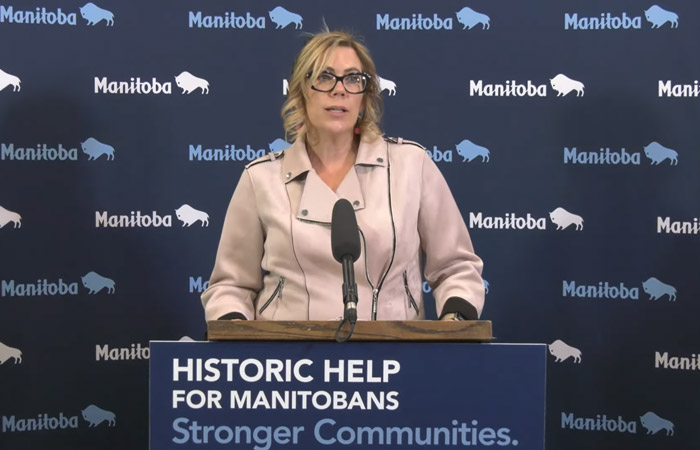A new community-based sexual assault crisis response and healing program will expand the availability and accessibility of specialized services and supports for survivors of sexual assault and intimate partner violence.
“Improving the availability of patient-centred, community-based options for sexual assault or intimate partner violence survivors is a critical goal we are delivering on today,” said Families Minister Rochelle Squires, minister responsible for the status of women. “This program will be an additional resource to enable community service providers to provide forensic nursing services in a non-hospital setting as part of a trauma-informed continuum of care.”
The Manitoba government is committing $1.3 million to phase one of the program, including the program’s initial site at Klinic Community Health and a community spoke site at Ka Ni Kanichihk that will be served by a mobile team. Plans for future phases includes developing spoke sites across Manitoba and establishing longer-term programming, noted Squires.
The new program will complement Manitoba’s Provincial Sexual Assault and Intimate Partner Violence program, increasing the resources available.
The development of the new provincial program is ongoing, with services at Health Sciences Centre (HSC) Winnipeg remaining available for adults and children who have experienced sexual assault and/or intimate partner violence. Additionally, survivors who need medical care will continue to be treated at the hospital prior to an examination.
The minister noted referral processes and pathways between the provincial program and these new community resources are being developed.
The new community-based program reflects the Manitoba government’s ongoing efforts to prevent, intervene in and support those impacted by gender-based violence. The collaborative, community partnership approach includes a Knowledge Keeper and Survivor Council, reflecting the core principles of the Calls to Action of the Truth and Reconciliation Commission and the Calls for Justice of the National Inquiry into Missing and Murdered Indigenous Women and Girls.
“Ka Ni Kanichihk is working with the community to ensure folks who need sexual assault crisis response and healing programs are properly supported and have access where they are comfortable in their community,” said Dodi Jordaan, executive director, Ka Ni Kanichihk. “Today’s announcement is a positive first step in meeting people where they are at, eliminating barriers and providing care centred on the needs of survivors and we look forward to working with community partners and Manitoba on much-needed prevention programs.”
The new community-based program will improve Manitoba’s health-care system capacity by complementing the existing Sexual Assault Nurse Examiner program at HSC Winnipeg, added Squires.
“Providing holistic, person-centred care that is culturally based and trauma-informed to support survivors is at the heart of this program,” said Ayn Wilcox, executive director, Klinic Community Health. “Building on the expertise of survivors and those providing services to them, this innovative, collaborative model will allow us to reshape how we collectively respond in a way that allows for true healing: body, mind and spirit.”
The Manitoba government designates April as Sexual Assault Awareness Month in Manitoba to promote awareness, education and discussion about the seriousness of sexual assault and violence.
For more information on available supports, visit gov.mb.ca.
If you are in need of support, the Sexual Assault Crisis Line can be reached in Winnipeg at 204-786-8631 and toll-free throughout Manitoba at 1-888-292-7565.


